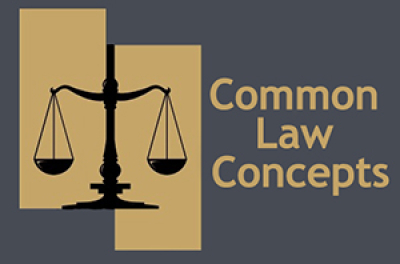Today most people are not well informed about the concept of the “Private Domain,” let alone feel competent and confident enough to act within it.
The private domain has a long history going back at least to the Magna Carta, signed in 1215 A.D., and arose in contradistinction to what has been termed the “Divine Right of Kings.” This is the supposed right of a monarch (or more recently the state) to determine the laws governing his subjects or its citizens.
THE DIVINE RIGHT OF KINGS
Here are some key points about the origins and basis for the "Divine Right of Kings":
- There is no one single foundational document that formally established the divine right of kings doctrine. It evolved over centuries in monarchical Europe, both through writings and in practice.
- Key early foundations were what the Bible ascribes to kings like David and Solomon - ruling by the grace and divine appointment of God. This formed the basic theological grounds for the doctrine.
- In the medieval era, Pope Leo III crowned Charlemagne as a holy emperor, providing a model for linking royal power to divine sanction. This was built upon by subsequent monarchs.
- In 1597, King James VI of Scotland gave his True Law of Free Monarchies speech, arguing that kings receive their power from God alone, not the Church or nobles.
- Philosopher Hugo Grotius and poet John Milton provided further theological and literary support for the divine right in their writings in the early 1600s.
- By the mid-1600s, a firm doctrine had emerged across Europe that kings derived their sovereignty and legitimacy exclusively from the will of God rather than secular authorities.
So while no single original document or charter formalized it, the concept evolved over centuries, based on a mixture of Biblical concepts, papal examples like Charlemagne's coronation, and growing philosophical support from notable thinkers and writers. Political practice ultimately solidified it as a doctrine.
The significance of the Declaration of Independence is that this is the first time in history in which individuals claimed their own divine appointment by God and then founded a nation based upon this principle. “All men are created equal” places the lowliest person of rank on his own rightful throne eliminating the claims of monarch and dictators for all time:
IN CONGRESS, July 4, 1776.
The unanimous Declaration of the thirteen united States of America,
When in the Course of human events, it becomes necessary for one people to dissolve the political bands which have connected them with another, and to assume among the powers of the earth, the separate and equal station to which the Laws of Nature and of Nature's God entitle them, a decent respect to the opinions of mankind requires that they should declare the causes which impel them to the separation.
We hold these truths to be self-evident, that all men are created equal, that they are endowed by their Creator with certain unalienable Rights, that among these are Life, Liberty and the pursuit of Happiness.--That to secure these rights, Governments are instituted among Men, deriving their just powers from the consent of the governed…
THE PRIVATE DOMAIN AND COMMON LAW
The private domain and common law are two distinct concepts in law:
Private domain refers to privately owned property or affairs under the control of an individual that are considered protected from arbitrary governmental interference. There is a reasonable expectation of privacy in one's private domain. For example, a person's home is their private domain where they can expect privacy rights.
Common law on the other hand refers to the body of law derived from judicial decisions and judicial precedents rather than from statutes or constitutions. It evolves based on court rulings and legal custom over time. Unlike statutory law made by legislatures, common law arises from the rulings of judges that then bind future court decisions. For example, common law governs areas like contracts, torts, property rights, trusts and estates, and more.
A few key differences:
- Private domain deals with reasonable privacy expectations, while common law deals with evolving judicial precedents.
- Private domain protects against governmental intrusion into one's private property or affairs. Common law emerges from the court system through judges' rulings.
- Private domain relies on concepts like "reasonable expectation of privacy" that protect individuals. Common law relies on the principle of stare decisis - courts stand by decided matters in prior similar cases.
So in summary, private domain relates to individuals' privacy rights, while common law provides the basis of our legal system through binding case precedents set by judges. They are distinct concepts dealing with different sources and applications of law.
Contact us via email: info@commonlawconcepts.com
or fill out our custom contact form

